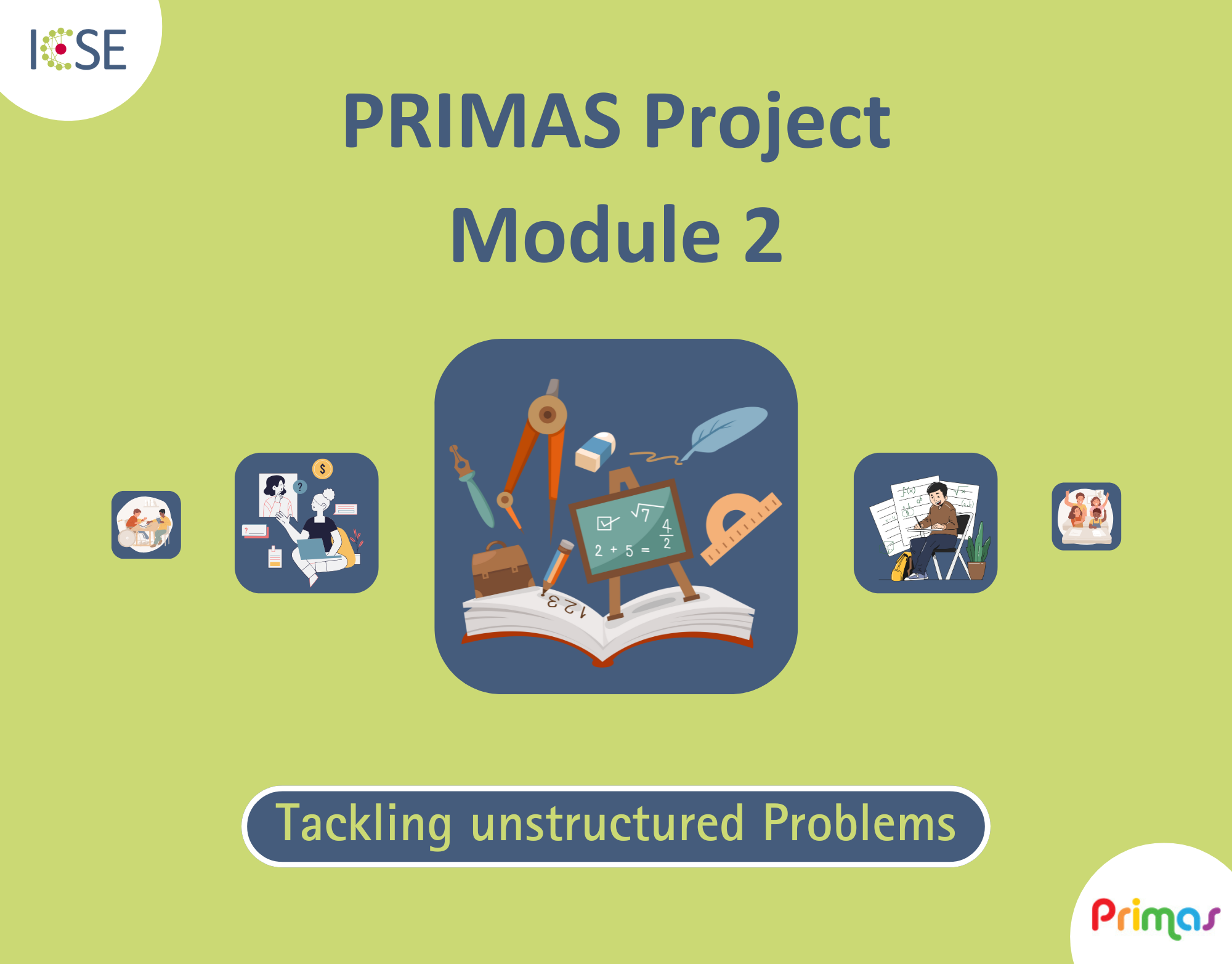
In traditional math and science classes, students follow structured tasks with specific techniques. This contrasts with real-world problems that demand skills like simplification, modeling, and choosing relevant knowledge. To prepare students for independent problem-solving in their future lives, this unit explores both structured and unstructured problems, examining the challenges they pose to students and teachers.
Module 2 includes a session guide and handout for teachers as well as two video sequences showing teachers using unstructured problems in their mathematics lessons.
Guide
![]()
![]()
Handout
![]()
![]()
Video 1 Activity D/E
![]()
Video 2 Activity D/E
![]()
About Primas
The Primas Project ran from 2010-2013 and was funded under the EU´s 7th Framework Programme for Research. An important part of the work of PRIMAS has been to provide teachers with professional development programmes that can support them in integrating and applying inquiry-based learning approaches in their mathematics and science classrooms.
A total of 7 modules have been developed. These modules deal with some of the pedagogical challenges that arise when introducing IBL activities to the classroom. The intention is that, as part of the Professional Development (PD) process, teachers will plan inquiry-based lessons to use with their own class and, at a later meeting, report back on their experiences.
Click here for other modules in this project.
Copyright: Centre for Research in Mathematics Education, University of Nottingham (responsible for content: ICSE, Director: Prof. Dr. Katja Maass)
Image source: Own illustration (ICSE)
Content-related competences
